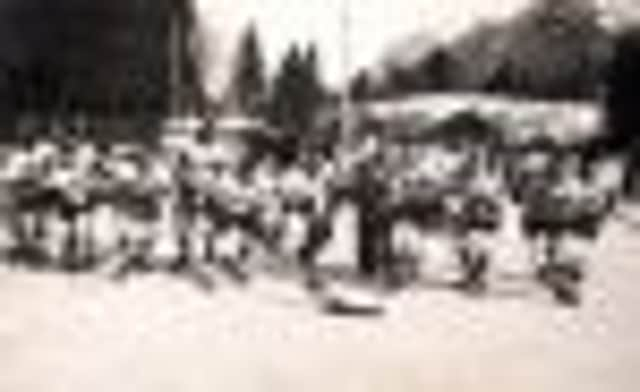Bygones: Returning Britons stick together to stun favourites Canada in heart of Third Reich to lift gold medal


It may not sound too impressive, but given the lack of preparation and resources afforded Tony Hand’s squad and the restructuring of the international game which had handed them their toughest group for years, it was, in fact, a considerable effort.
Ice hockey in the UK is now firmly regarded as a minority sport and you would have been hard-pressed to detect any notable coverage of the GB team’s efforts in the national media.
Advertisement
Hide AdAdvertisement
Hide AdRewind 76 years, however, and it was a different story. GB’s men’s ice hockey team returned from Garmisch-Partenkirchen in Germany as heroes with the gold medal – one of only eight won by Britain since the winter games began in 1924. It also saw them crowned world and European champions.
The fact coach Percy Nicklin’s team had inflicted a first Olympic defeat on the all-conquering Canada team on their way to winning gold in Nazi Germany created headlines around the world.
As retold in Rob Jovanovic’s fascinating book Pride & Glory – The Forgotten Story of Great Britain’s Greatest Olympic Team, two Yorkshiremen played their part in the unlikely triumph.
Both were born within the White Rose borders before emigrating to Canada as children. Archie Stinchcombe, from Cudworth, and Jimmy Chappell, born in Huddersfield, were among a number of players to return ‘home’ during the mid-1930s after Nicklin had carried out a widespread search in Canada for players who had learned their hockey in that country, but who had a birth qualification to play for Britain.
Advertisement
Hide AdAdvertisement
Hide AdEven to this day, there is a misconception that the successful British team was full of Canadians. In truth, while many first played hockey in their adopted country, there were only two actual Canadian-born players in the squad. Canada had as many British-born players in its own squad.
After a failed attempt by the Canadian team to have two of Great Britain’s players suspended from the tournament – relating to a disagreement over their transatlantic moves to clubs in England – the scene was set for an eagerly-anticipated second-round match between the two. It would prove to be most pivotal of the whole games.
Both teams made it through the first round of matches unbeaten and came together on February 11. Canada were still the overwhelming favourites having won all previous gold medals since ice hockey was first staged at the 1920 summer Olympics.
But it was the British – heavily beaten by the Canadians in a most previous meetings – who got the best possible start when, only 20 seconds in, Gerry Davey fired in a speculative shot which flew past goaltender Dinty Moore. Nicklin’s players defended stoutly, but went in level at the end of the first period after Canada hit back through Ralph St Germain.
Advertisement
Hide AdAdvertisement
Hide AdThe match was heading for overtime before Edgar Brenchley popped up to poke home a rebound with only two minutes left to seal a memorable victory.
With results from the second round carrying through to the final group phase, the two sides would not have to face each other again – even though Canada did attempt to get that rule changed.
A 5-0 win over Czechoslovakia and a 0-0 draw with the USA followed for Britain and although Canada defeated their neighbours in the final match, it only earned them a silver medal, ensuring the gold was Britain’s.
Afterwards, Stinchcombe - who went on to coach Nottingham Panthers to English National League success twice in the 1950s – said: “Nobody really expected us to win … but I never felt we were going to lose.”
Twitter: @philarra
’Pride & Glory – The Forgotten Story of Great Britain’s Greatest Olympic Team’, by Rob Jovanovic, is available on Amazon and via Pineapple Books.